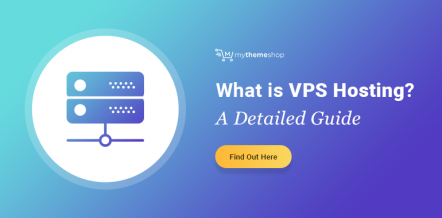With web development becoming more and more dynamic, databases have become a crucial part of a website. Even the basic elementary applications use databases in one way or another.
Almost every other website nowadays, stores, retrieves and modifies data to deliver a particular output.
With the increase of database usage, it has now become essential to have a basic idea of various relational database management systems or simply RDBMS.
Even if you’re not a web developer or you are merely managing a WordPress website, we would highly recommend you read this article till the end.
What is a Relational Database Management System?
In simple words, a Relational Database Management System is a software through which a person can interact with the databases to update, modify, and administer the data.
In the relational database, the data is stored in a basic format using rows and columns, making it easier for a person to traverse through it.
The values within each table are related to each other in one way or another, hence the name relational. In Simple words, the various RDMS software offers a visual representation of data allowing you even to make changes visually.
Two of the most popular RDMS systems are MySQL and SQL Server. In fact, as per the latest trend, MySQL is dominating the entire database space with around 38.9% share.
Well, both the system is based on the SQL server, but they work distinctly although performing the same functionality.
Speaking of a few similarities, both the system makes use of tables to store data, primary and foreign essential references, and the ability to manage multiple databases within a single server.
Before we jump right into the difference between MySQL and SQL, let’s first have a look at them individually to understand them better.
What is SQL?
SQL stands for Structured Query Language. It is a language used for accessing and managing databases. You can add, retrieve, remove, or access data within a particular database with the help of SQL.
ANSI or American National Standards Institute has made SQL a standard language to manage data inside a database.
Using SQL, you can create programs to cater to your need for tinkering with the database.
In SQL, you don’t have to specify how to reach a record making it one of the most natural database languages. On top of this, you get the advantage of accessing multiple records through a single command.
Even though the language follows ISO/IEC 9075 standard, the code written is not entirely portable. You’ll have to make some changes depending on database systems.
What is MySQL?
MySQL is an open-source relational database management system (RDMS) which was initially designed by MySQL AB in 1995. Later, the system was acquired by the Oracle Corporation.
For those who’re unaware, open-source software is free to use, and their code is generally made open so that other developers can modify it.
As mentioned earlier, MySQL is one of the popular RDMS systems which is largely used on the web instead of the offline data management.
MySQL is written using C and C++ languages, and it supports all the major platforms like Windows, Linux, Solaris, macOS, and FreeBSD.
The system has already been implemented in many web apps, which are database-driven such as WordPress, Joomla, and Drupal. Most of the popular websites such as Google, Facebook, and Twitter also use MySQL in one way or another.
Since the service is free and open-source, it is quite popular among the startup communities. Generally, MySQL is used with PHP and APACHE web server on top of Linux distribution, hence the popular acronym LAMP (Linux, Apache, MySQL, PHP).
Difference between MySQL and SQL
With a basic understanding of SQL and MySQL cleared out, let’s have a look at the difference between these two popular terminologies.
In short, SQL is a query language, while MySQL is a database management system. Here is an in-depth difference between the two.
- SQL or Structured Query Language, as the name suggests, is a language that is created to manage relational databases. MySQL, on the other hand, is an open-source software which is based on the SQL language. Using MySQL, you can tinker with the data stored in a database.
- SQL is a query language while the latter is a database software that uses SQL to create queries for databases.
- Since SQL is a language, it doesn’t get any updates. The commands always remain the same. MySQL, on the other hand, is a software, and hence, it receives frequent software updates. The current stable version of MySQL is version 8.0, which claims to provide up to 2 times faster experience than the previous version.
- To use SQL, you will need to invest hours in learning the language. With MySQL, on the other hand, you have to download the software and install it. Thanks to the visual representation, you can easily manage databases using the latest MySQL software.
Difference between MySQL and SQL Server
When it comes to the Relational Database Management System, two of the most popular software are MySQL and SQL Server. Both the software offers different features and is perfect in each way. Here is a quick comparison between the two popular SQL-based systems.
- Licensing
Indeed, MySQL is completely free and open-source software owned by Oracle Corporation. SQL Server, on the other hand, is only proprietary software owned by Microsoft. Its source code is generally not open for others - Written in
Both MySQL and MS SQL Server is written using the same C and C++ languages - Syntax
SQL Server syntax is said to be very simple and easy to use.
MySQL, on the other hand, is a bit complex when compared with the SQL Server. - Multilingual
SQL Server is a language which comes in multiple languages giving it immense popularity
MySQL, on the other hand, supports only the English language - Supported Platform
SQL Server supports Linux, macOS, Windows, and Windows Server. The system is available on Linux and macOS via docker, and hence, it lacks a certain set of features. MySQL, on the other hand, supports almost all the popular OS out there and that too completely. The OS includes Linux, Windows macOS, and Solaris. - Supported Programming Languages
SQL Server supports multiple programming languages such as C++, Java, Go, PHP, Python, VB, and R. MySQL already supports all the languages mentioned above. Instead, it also works with languages like Perl, Scheme, Tcl, and Haskel. It is one of the reasons why the developers’ community loves MySQL. - Storage Engine
SQL Server makes use of a single storage engine developed by Microsoft. On the contrary, MySQL uses multiple storage engines, making it much more flexible. Users can choose different engines based on speed, reliability, or any other criterion. - Security
When it comes to security, SQL Server is more secure than MySQL. In SQL Server, other processes can not access or manipulate the data. In simple words, hackers or any third-party app can not access the data directly. In MySQL, you can manipulate database files at the run time using binaries, making it less secure. Any other unknown process can access and modify the data easily. - Community Support
Since SQL Server is not open-source software, therefore, the community support is not that excellent. If you run into some problem, you’ll have to go to Microsoft SQL Server support eventually. This is where MySQL earns more points. You can find the solution to almost any problem just by searching on the internet. If not, you can always find the community. - Editions
Microsoft SQL Server comes in different editions, which include Enterprise, Standard, Web, Express, and Developer. You’ll have to compare various aspects to choose the right one. MySQL offers three different editions, namely Standard, Enterprise, and Cluster GCE. There is also a Community edition which, as discussed, is free and open-source. - Pricing
Coming to the pricing, the developer and express edition of SQL Server is completely free. Although you’ll have to shell out heavy bucks for other editions. For instance, the Enterprise edition costs around $14,256, and the Standard edition is priced at $3,717. MySQL’s standard edition annual subscription costs $2,000 while the Enterprise edition is priced at $5,000. The Cluster GCE, on the other hand, is going to set you back $10,000.
Comparison Table: SQL vs. MySQL
With a basic understanding of SQL and MySQL cleared out, let’s have a look at the difference between these two popular terminologies. In short, SQL is a query language, while MySQL is a database management system.
Here is an in-depth difference between the two.
| Parameter | SQL | MySQL |
| Definition | SQL or Structured Query Language, as the name suggests, is a language that is created to manage relational databases | MySQL is an open-source software which is based on the SQL language. Using MySQL, you can tinker with the data stored in a database.
|
| Type | SQL is a query language | MySQL is database software that uses SQL to create queries for databases |
| Updates | SQL is a language hence it doesn’t receive any updates. The commands and syntax always remain the same. | MySQL is a software and hence it receives frequent software updates. The current stable version of MySQL is version 8.0, which claims to provide up to 2 times faster experience than the previous version. |
| Complexity | To use SQL, you will need to invest hours learning the language to use it. | With MySQL, on the other hand, you have to download the software and install it. Thanks to the visual representation, you can easily manage databases using the latest MySQL software. |
| Purpose | To handle and query the database | To handle, modify, store and delete the database |
| Flexibility | SQL supports XML and user-defined function | MySQL supports neither XML nor user-defined function |
MySQL vs. SQL Server: Which one to Choose?
If you’re just started out with the web app development, then you should choose the RDMS system very carefully since you’re going to be using it almost all of the time. Also, switching between technologies would be a little difficult in the future.
We tried to differentiate the two most popular, MySQL, and SQL Server, in this article. In some scenarios, MySQL seems like a better option, while in many, it was the opposite.
In the end, it boils down to personal preference and the way you’ll be using these technologies. Just for quick head start, we’ll recommend going with MySQL for a medium or small-sized web app that will use PHP.
For large scale business which needs more security and enterprise-related features, SQL Server would be a perfect fit.




